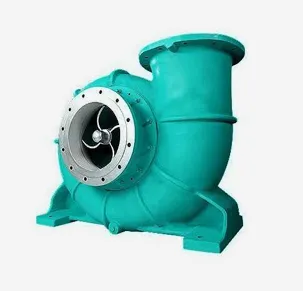Yiddish
- Afrikaans
- Albanian
- Amharic
- Arabic
- Armenian
- Azerbaijani
- Basque
- Belarusian
- Bengali
- Bosnian
- Bulgarian
- Catalan
- Cebuano
- Corsican
- Croatian
- Czech
- Danish
- Dutch
- English
- Esperanto
- Estonian
- Finnish
- French
- Frisian
- Galician
- Georgian
- German
- Greek
- Gujarati
- Haitian Creole
- hausa
- hawaiian
- Hebrew
- Hindi
- Miao
- Hungarian
- Icelandic
- igbo
- Indonesian
- irish
- Italian
- Japanese
- Javanese
- Kannada
- kazakh
- Khmer
- Rwandese
- Korean
- Kurdish
- Kyrgyz
- Lao
- Latin
- Latvian
- Lithuanian
- Luxembourgish
- Macedonian
- Malgashi
- Malay
- Malayalam
- Maltese
- Maori
- Marathi
- Mongolian
- Myanmar
- Nepali
- Norwegian
- Norwegian
- Occitan
- Pashto
- Persian
- Polish
- Portuguese
- Punjabi
- Romanian
- Russian
- Samoan
- Scottish Gaelic
- Serbian
- Sesotho
- Shona
- Sindhi
- Sinhala
- Slovak
- Slovenian
- Somali
- Spanish
- Sundanese
- Swahili
- Swedish
- Tagalog
- Tajik
- Tamil
- Tatar
- Telugu
- Thai
- Turkish
- Turkmen
- Ukrainian
- Urdu
- Uighur
- Uzbek
- Vietnamese
- Welsh
- Bantu
- Yiddish
- Yoruba
- Zulu
Telephone: +86 13120555503
Email: frank@cypump.com
Jul . 28, 2024 21:41 Back to list
Top Manufacturers of OEM High-Performance Slurry Pumps for Heavy-Duty Applications and Industries
OEM High Head Slurry Pump Manufacturers Leading the Charge in Industrial Efficiency
In the realm of industrial applications, the transportation of slurry—a mixture of solid particles and liquid—is a critical process across various sectors such as mining, metallurgy, construction, and wastewater treatment. One of the key components in ensuring efficient slurry transport is the slurry pump, particularly high head slurry pumps. Manufacturers of these pumps play a pivotal role in enhancing operational efficiency, reducing downtime, and ensuring that rigorous demands are met.
Understanding High Head Slurry Pumps
High head slurry pumps are specially designed to handle both abrasive materials and high pressure. They are engineered to operate under conditions that require significant lift, making them ideal for applications involving the transfer of heavy slurries over long distances. These pumps typically feature a robust construction, with wear-resistant materials that can withstand the corrosive nature of the slurry, thus ensuring a longer lifespan and reduced maintenance costs.
The Role of OEM Manufacturers
Original Equipment Manufacturers (OEMs) are the backbone of the slurry pump industry. They design and produce pumps specifically tailored to meet the unique requirements of their clients. The expertise of OEM manufacturers allows them to create pumps that are not only efficient and reliable but also customizable. They can accommodate various sizes, materials, and performance specifications depending on the needs of the client’s application.
One of the primary advantages of working with OEM high head slurry pump manufacturers is their access to the latest technologies and innovations. Many manufacturers invest heavily in research and development (R&D) to improve pump designs, enhance energy efficiency, and incorporate advanced materials. This commitment to innovation helps businesses keep up with the evolving demands of the industry, ensuring that they utilize pumps that optimize performance while minimizing operational costs.
Tailored Solutions for Diverse Industries
Different industries have distinct slurry characteristics and pump requirements. OEM manufacturers often cater to a wide range of sectors, providing tailored solutions that address specific challenges. For example, in mining, pumps may need to operate effectively in extreme conditions, managing the transport of thick mineral slurries. In wastewater treatment, pumps must efficiently handle varying compositions of waste materials. The ability of OEM manufacturers to customize their offerings ensures that pumps are perfectly suited to each industry's needs.
oem high head slurry pump manufacturers

Benefits of Partnering with OEM Manufacturers
Collaborating with reputable OEM high head slurry pump manufacturers offers several notable benefits
1. Quality Assurance OEMs often adhere to strict quality control measures, ensuring that each pump meets industry standards and performs reliably.
2. Technical Support Manufacturer partnerships typically come with robust technical support, including installation, maintenance, and troubleshooting assistance.
3. Bulk Purchasing Options Many OEMs provide competitive pricing structures for bulk orders, allowing businesses to reduce procurement costs.
4. Warranty and After-Sales Service Reliable manufacturers offer warranties and after-sales services, providing peace of mind and protection against unforeseen issues.
Conclusion
As industries continue to evolve, the importance of efficient slurry transport will only grow. High head slurry pumps, particularly those manufactured by OEMs, are essential in meeting these demands. Their combination of durability, customization, and advanced technology ensures that businesses can operate effectively and stay competitive. By partnering with high-quality OEM slurry pump manufacturers, companies can secure the equipment needed to enhance their operational efficiencies and drive success in their respective fields. Investing in the right equipment today will undoubtedly yield dividends in operational performance and cost savings in the long run.
-
Heavy-Duty Mining Sludge Pumps - Wear-Resistant Slurry Handling
NewsAug.02,2025
-
Horizontal Split Case Pump with GPT-4 Turbo | High Efficiency
NewsAug.01,2025
-
ISG Series Pipeline Pump - Chi Yuan Pumps | High Efficiency, Durable Design
NewsAug.01,2025
-
Advanced Flue Gas Desulfurization Pump with GPT-4 Turbo | Durable & Efficient
NewsJul.31,2025
-
ISG Series Vertical Pipeline Pump - Chi Yuan Pumps | Advanced Hydraulic Design&Durable Construction
NewsJul.31,2025
-
ISG Series Vertical Pipeline Pump - Chi Yuan Pumps | Energy Efficient & Low Noise
NewsJul.31,2025










